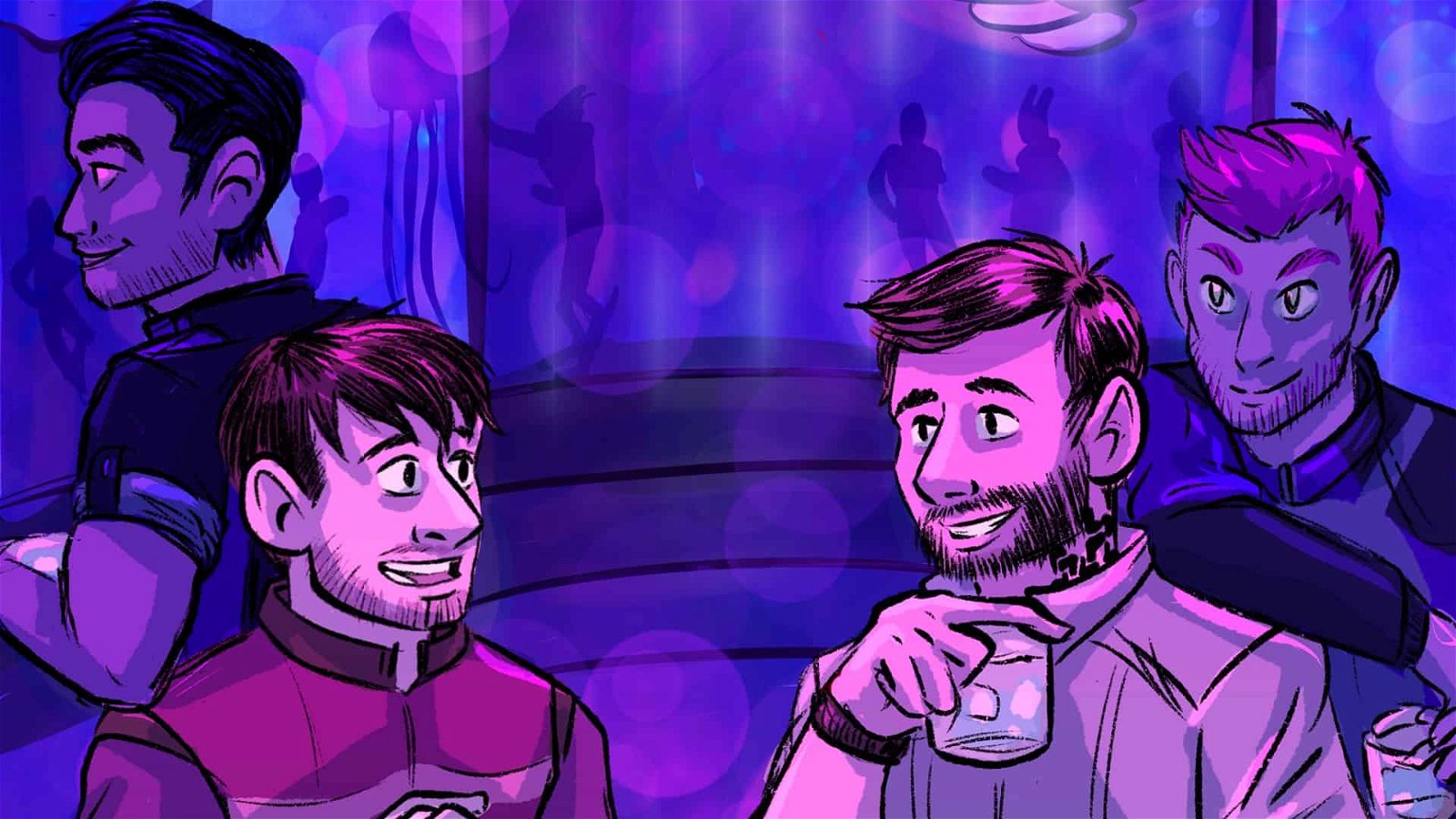If the two of them had met, I don’t think my versions of Commander Shepard and Pathfinder Ryder would like each other very much.
In their own way, choice-based games are litmus tests for our own ethos. We’re faced with a wide variety of situations, whether the scale or stakes are life or death or just in who we support in conflict, and we project our own views and motives onto the character we control. This is the way I’ve played the entire Mass Effect series, and revisiting both Mass Effect 3, probably the most important game to my adolescence, and Mass Effect: Andromeda, more or less a reset of the series with a new protagonist and setting, has been…telling.
When it comes to series like Mass Effect, I don’t tend to deviate from my designated path despite multiple playthroughs of each. Making choices as Shepard or Ryder has never been about gaming the system to find the “best possible” outcome, it’s been about making the decision I feel is right in the moment and living with it regardless of what ultimately happens. As such, characters like the protagonists of Mass Effect are a snapshot of who I was at the time. My values, my preferences, everything about me that Bioware gave me the tools to express is encapsulated in Shepard and Ryder. At least, who I was when I played them initially.
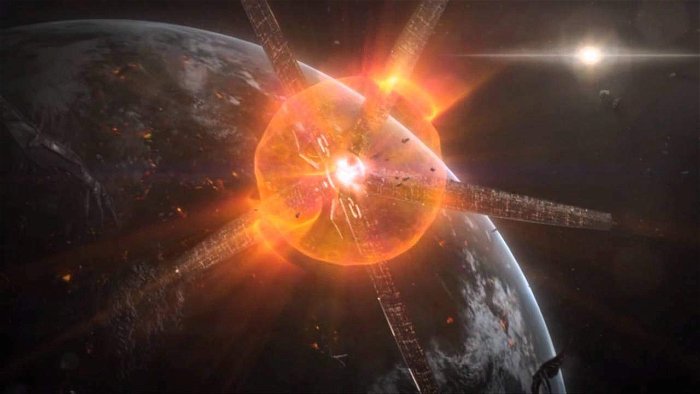
Following Bioware’s news that Mass Effect is going to continue, despite all the controversy that followed Mass Effect: Andromeda last year, I finally found it in me to revisit Ryder’s story without the empty feeling that followed when I thought it might not see resolution. For all intents and purposes, I’ve been in a bit of a Mass Effect frenzy since. I replayed Andromeda, read the two novels I hadn’t gotten around to, and am in the process of completing my Mass Effect comic collection that has been missing a few issues and mini-series. When my hunger for Bioware’s sci-fi world wasn’t quite sated after all of that, I decided to look back even further and replay Mass Effect 3. Sure, I had to dust an inch and a half of my Xbox 360 and actually buy AA batteries in the year of our Lord 2018, but the original Mass Effect trilogy is the reason I’ve kept the old box around all this time, and now seemed the perfect time to make it count.
Playing both ME3 and Andromeda in such close proximity to one another was both jarring and somehow felt comfortable. Despite the leaps Andromeda made in the series’ combat, ME3 still holds up pretty well mechanically. But holding on to the same decisions and dialogue choices I made six years ago wasn’t as easy as I thought it would be, and it wasn’t until the tenor of Shepard’s conversations were slightly different from what I remembered them to be that I realized my former-super Renegade Spectre was pulling punches he didn’t before, and this wasn’t always a conscious decision on my part.
The original Mass Effect trilogy was a defining story of my adolescence, and Commander Shepard a central character. I was 15 when the first game came out, in the midst of my emo phase and still coming to terms with my sexuality. Mass Effect was this safe space for me to express my anger and aggression, and it meant I naturally gravitated toward Renegade decisions. These choices are defined by apathy, ruthlessness, and intimidation. It coloured my version of Shepard as a cold man, even if I didn’t carry that side of him out among squadmates or anyone who was generally agreeable.
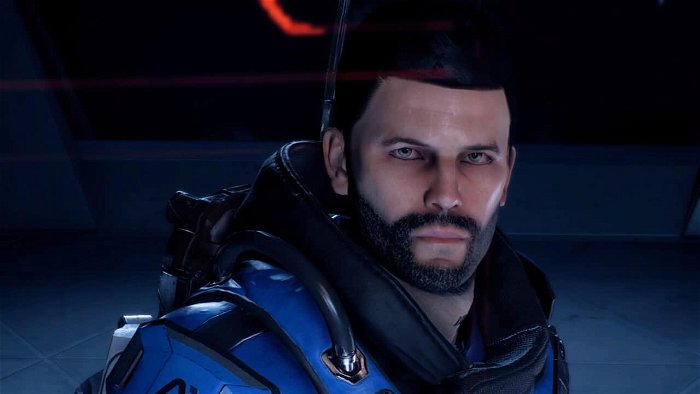
As the trilogy went on and I grew older, I found the gap between Renegade and Paragon decisions shrinking, to the point where in Mass Effect 3 it was roughly a 60/40 split. But even so, in that game’s final moments I chose the Destroy ending, which ended the game’s trilogy-long war with two counts of genocide. It was the calculated decision. There was a certainty to it and it felt very much in line with the “victory at any cost” mindset that my Shepard had always approached situations with.
Six years later I’m back in Shepard’s shoes and having conversations that don’t always go quite as I remember them. I realize that my Paragon leanings are much higher than they were when I originally played Mass Effect 3, even if those choices just feel like a natural course of action to me now. Even if these small, seemingly insignificant choices are different, I’m still sticking mostly to the script I wrote all those years ago.
Conversely, Mass Effect: Andromeda doesn’t keep track of choices by a Paragon and Renegade scale, and Ryder is defined more on the personality and intent that his choices convey. But looking at the bulk of what I did as Ryder, I realize that he would be a Paragon if the original morality had been brought along with the new protagonist.
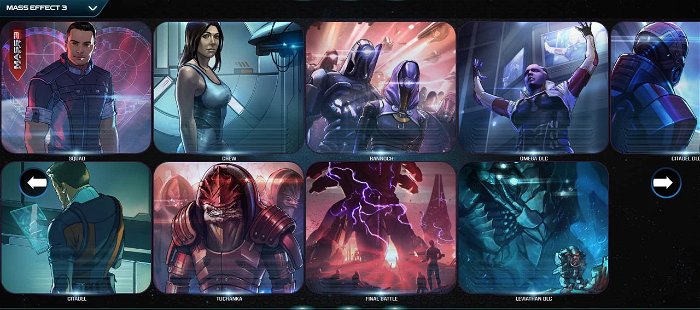
I’m 26 years old now, and a lot has changed for me. When I was a teenager I was selfish, mostly concerned for my own well-being above others, and it’s impossible to discount the place I was in when I played as Shepard. To me, Mass Effect was a love story between Shepard and Kaidan Alenko, and my version of that character would do anything he could to see his personal mission through saving himself and his love from the threats of the galaxy, no matter who got in his way. Sure, I cared about the state of the galaxy, my friends, and ensuring they got what they needed out of my actions, but Shepard for me was a person with a very clear bottom line that kept him going, even if it was selfish. That was just the kind of person I was back then, and it coloured every decision I made throughout Mass Effect 1-3.
Now, my perspective has changed and my values along with it. Ryder’s journey may not be on the same scale that Shepard’s ever was, but he’s more explicitly put in a position of responsibility, and it asked things of me that the original trilogy didn’t. As a Pathfinder, Ryder’s job is to find new homes for a small population of the Milky Way Galaxy in Andromeda. Approximately 100,000 people from various species have come in search of a fresh start in a new galaxy. More so than ever before, Mass Effect underscores the value of life, and it made every time I had to turn against someone who travelled all this way just to die at the hands of Ryder sting all the more. If a Human, Asari, Turian or Salarian was on the other end of my gun, it was hard to not feel like that was on me, and it was a shame that these people’s lives had come to this and that I had no way to help them.
That feeling of empathy I felt for those characters is the same value for life that has informed so much of my worldview. My sense of social justice comes from it. It’s why I care about overturning systems that have been put in place to keep people marginalized. It’s why stories of injustice and the state of the world have become almost overwhelming for me in recent years.
Even on a smaller, more intimate scale, Ryder’s goals and dreams are vastly different than Shepard’s. I imagined both of them as protective of those close to them, but I pictured Shepard living out the years after Mass Effect 3 as a reluctant hero to the Milky Way, yearning for a private life with Kaidan, but they had each other and that was all that mattered to him. Whereas Ryder, even in one game, is laying the foundation for a family with Gil Brodie and has taken on the responsibility of Pathfinder with a care for the gravity of what that entails.
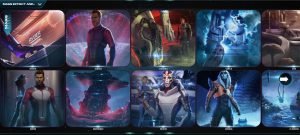
Ryder for me was a man looking to shaping the future for more than just himself. For him, the ends didn’t always justify the means. The mission wasn’t always worth the loss of life. Those were people who believed in the Andromeda Initiative at some point, and they’d been let down by leaders who couldn’t or wouldn’t do right by them. I felt that responsibility to make right on the promises the Initiative made to them, but I also felt the responsibility to use my status as the Pathfinder to be a force for good for as many people as I could. It wasn’t about personal gain, it was about realizing that the world was bigger than me and that if I had the power to change it for the better, I should.
I am constantly talking about how much I want to see the original Mass Effect trilogy remastered (and put on Switch, mostly), but in retrospect, I don’t know that I’d be able to relate to it and Shepard in the way I did before again, and that’s okay. If Shepard was a vessel for me to discover who I was, Ryder was a conduit for me see how I could be better. Mass Effect may be a space opera of difficult decisions for some, but for me, it’s been and continues to be a place whereby the time it was over I felt like I had a digital time capsule of who I was sitting in a save file waiting to carry over to the next game. Should whatever Mass Effect comes next let me continue Ryder’s story, I hope I look back on my decisions in Andromeda with a contentment I don’t always feel when I think about what my Shepard did in those old games. Sometimes it takes time to feel like we’re on the right track, and sometimes we’re certain the path we’re on is exactly where we’re supposed to be. So maybe in the end, Shepard needed to make the hard decisions he did so Ryder would know how to be better, and the same applies to the guy on the other end of the controller.
Original art by Mittie Paul. For more of their work, check out their portfolio and follow them on Twitter.
